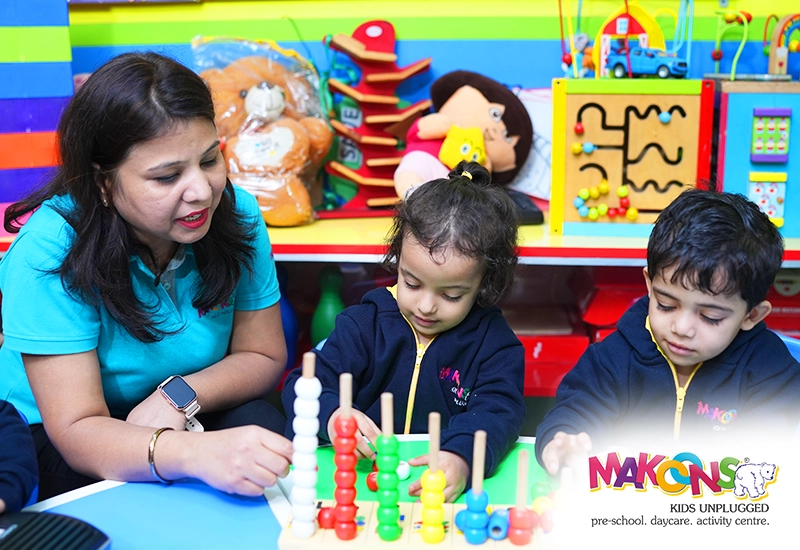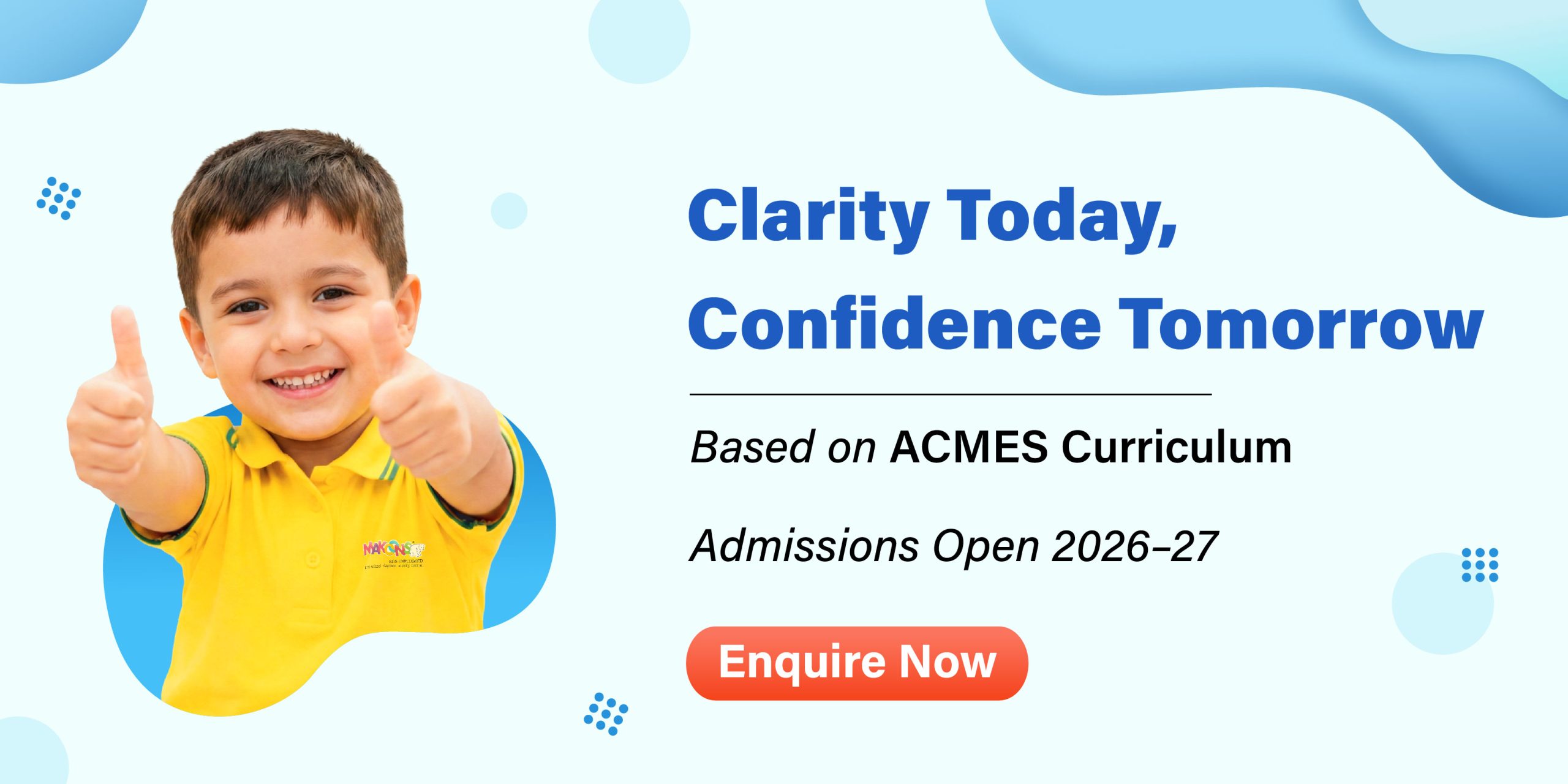Early childhood education in India has changed remarkably recently; kindergarten is currently a pillar upon which a child’s academic path rests. The Indian kindergarten system has changed to suit rising aspirations and educational needs as parents realize more and more the value of these early years. Examining its policies, curriculum, advantages and drawbacks, this blog evaluates the current situation of kindergarten education in India.
The Foundation of Early Childhood Education in India
Usually servicing children between the ages of three and six, kindergarten education in India is the pillar of a child’s educational path. Derived from German and meaning “children’s garden,” the term “kindergarten” adequately captures the idea behind this educational level: a caring atmosphere where young brains might grow naturally.
From the conventional “play school” idea, the education India provides presently has evolved drastically. Modern kindergartens school in India on overall development by means of controlled but flexible learning environments supporting curiosity, creativity, and development of basic skills.
Understanding the Indian Kindergarten System
Generally speaking, Indian kindergarten systems consist of three stages:
Nursery Program/Playground: Two to three years of age. Introduction to the learning environment stresses social adaptation and basic skill development.
Kindergarten Junior KG/LKG (3.5–4.5 years): devotes especially great attention to pre-literacy, pre-numeracy, and improved social skills.
Kindergarten Senior KG/UKG (4.5–5.5 years): prepares for formal education by utilizing rigorous study of alphabets, numbers, and basic principles.
Children can develop age-appropriate skills at every level and eventually adapt to their learning environment through this progressive approach.
The Evolving Kindergarten Curriculum in India
From rote learning to a more all-encompassing approach covering many development domains, the kindergarten curriculum in India has changed.
Enhancement of Cognitive Skills
Modern kindergarten classes abound in exercises encouraging logical thinking, problem-solving, and fundamental scientific notions. Children learn better from inquiry, research, and discovery than from memorizing.
Language and Reading Skills
Given multilingualism in India, language development gets far greater emphasis there. Programs aimed at pre-reading skills, vocabulary development, phonological awareness, and narrative often run in both English and regional languages.
Competencies related to numeracy
Games, manipulatives, and hands-on activities help to clarify basic mathematical ideas such counting, form recognition, sorting, and fundamental arithmetic by means of their tangible application.
Natural Advancement
Outdoor play, dance, yoga, and hobbies like sketching, beading, and clay modeling now routinely define instruction for kindergarten-level children in India in both gross and fine motor skills development.
Emotional Development for Social Advancement
Progressive kindergartens today give more of an emphasis on developing emotional intelligence, conflict resolution, empathy, and social skills—competencies becoming seen as absolutely crucial for future success.
Understanding in Society
Many initiatives combine aspects of Indian history, celebrations, customs, and values to promote cultural identification and respect for diversity.
Strategies for Education in Indian Kindergartens–
In the scene of pedagogy in India, early childhood education has become somewhat diverse. Modern classrooms implement several teaching strategies:
Play-based Learning
Children learn most from play, hence, play-based solutions include both planned and unstructured play chances in the curriculum.
Montessori Education Approach
Growing quite popular in metropolitan India, this child-centered approach emphasizes independence, freedom within limitations, and respect for children’s natural growth.
Methodologies of Reggio Emilia
Since some premium kindergartens see their pupils as capable and strong people who grow via interactions with their surroundings and other people, they have adopted this method.
Classical Method of Education
Many schools still incorporate aspects of the conventional academic approach with controlled instruction, particularly for getting students ready for applications to competitive primary schools.
Challenges Within the Kindergarten Learning Environment–
Even with great progress, kindergarten education in India still has significant difficulties:
Accessibility and Affordability
Many families still lack access to good early childhood education due in considerable part to exorbitant prices, especially in metropolitan regions where elite kindergartens demand hefty tuition.
Quality Standardization
Non-uniform quality criteria and regulatory systems result in considerable differences in the quality of education given by several institutions.
Teacher getting ready
Since many institutions hire teachers without specific knowledge in early childhood development, there is a present scarcity of properly educated early childhood educators.
Urban–Rural Variability
Urban and rural kindergarten settings differ greatly; rural areas typically lack access to high-quality early childhood education programs.
The Way Forward for Preschool Education in India
Many innovations are directing kindergarten education as India realizes the importance of early years learning:
National Education Policy 2020
Reawakening interest on early childhood care and education, the NEP 2020 stresses developmental appropriate practices and universal access to quality preschool education.
Technology Integration
To assist students in balancing screen time with hands-on activities, kindergarten courses are purposefully combining interactive learning methodologies and digital tools.
Parent Involvement
Parents are seen by schools as partners in education, which opens chances for their significant participation in the courses of learning their children pursue.
Inclusive Education
It is more and more important to make kindergarten inclusive for kids from many socioeconomic backgrounds and with different learning requirements.
Conclusion
At last, kindergarten education in India reaches an unexpected junction where new ideas mix with traditional values. Stakeholders should expect more innovations and sectoral improvements since these early years lay the groundwork for lifetime learning.
Finding settings that encourage their child’s natural curiosity, joy of learning, and whole development beyond just academic competence should still be the first concern for parents negotiating the challenging terrain of early childhood education. After all, a good kindergarten helps kids be ready for life rather than only for college.
By means of constant development and careful application of developmental ideas, the best kindergarten franchise In India could give every child the strong basis they so merit at the beginning of their educational path.


